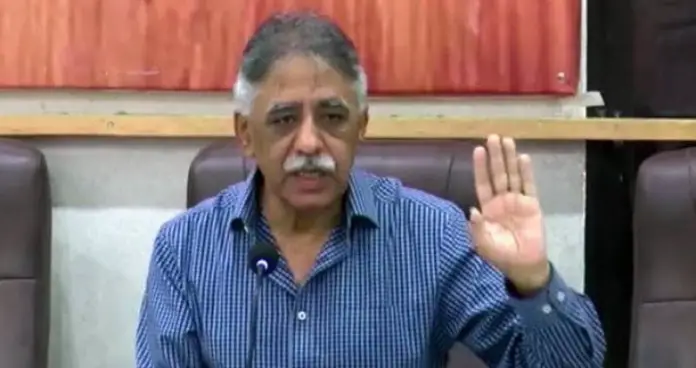Digital political warfare reared its ugly head after inappropriate videos of Pakistan Muslim League-Nawaz (PML-N) member and former Sindh governor Muhammad Zubair Umar went viral on social media. The video was shared countless times and the incident trended on Twitter all day. The retweets were objectionable and vulgar responses, many of which were by supposed Pakistan Tehreek-i-Insaf (PTI) fans and others, who took the opportunity to stomp on the already fragile state of party politics in the country. Umar himself categorically denied that the video was real and lamented that the allegedly doctored video was a ‘shameful act’ in the name of politics.
https://twitter.com/Real_MZubair/status/1442237405432463364
Later, Avari hotel also released a statement, denying that they placed any hidden cameras after Twitter users claimed that the hotel’s bedrooms appeared in the video.
From amidst the severely indecent responses rose a voice of reason, that of international law researcher Imaan Mazari, who said that the spread of the video was a gross violation of an individual’s privacy. Without commenting on the veracity of the video, Mazari said that filming people in their bedrooms was a ‘blackmailing tactic’ that was often deployed against high up officials like politicians and judges. She added that recording and disseminating the video was an affront to constitutional rights of a citizen.
Mazari’s words find weight in legislation that deems to protect against cyber harassment, the kind Zubair has become victim to. While controversial for its narrow interpretation and application, the Prevention of Electronic Crimes Act (PECA) 2016 provisions strict action against the circulation of Umar’s video. Under article 19, anyone found transmitting sexually explicit images or videos of people, whether real or superimposed, is liable to imprisonment up to five years or a fine of Rs5 million, or both.
While it is true that PECA is often perceived as a protection law for women, it applies to all citizens and therefore men as well. Whether the due legal process will be followed in this case against the burgeoning virality of the video and comments on Umar’s character, remains to be seen. Nevertheless, it is harrowing that majority responses were indecent as opposed to opinions like Mazari’s, who had something reasonable to say. Whether the video is fake or real, Umar’s character or his demeanour in private should not be the subject of public debate. The uproar should instead be directed towards those spreading the video and commenting on it.
Perhaps a good start to speaking against the video’s spread would be Mazari’s mother and Human Rights Minister Shireen Mazari herself. Or even Federal Information Minister Fawad Chaudhry, who has often functioned as the mouthpiece for Prime Minister Imran Khan’s war against ‘immorality’. Political party leaders from across the board must denounce the crudity of their respective followers. As for Khan himself, it is only fair he denounces the cyber-crime against Umar, the same way he personally oversaw the justice process when a young duo posed in front of Quaid-i-Azam’s monument in what society deemed to be ‘inappropriate attire’.







